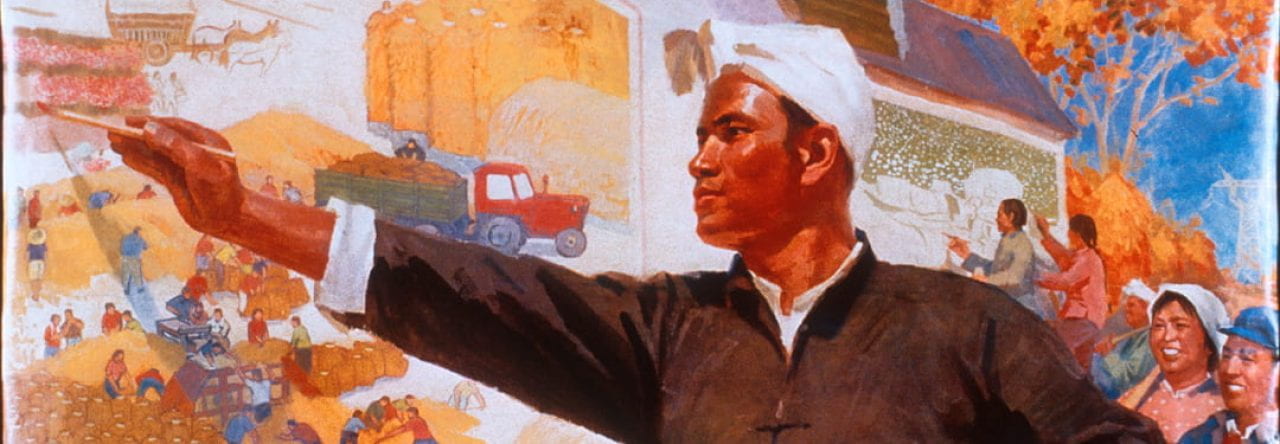Zhang Hongtu was born in 1943 in Gansu Province in the northwest of China to a Muslim family. He studied at a high school attached to the Central Academy of Arts and Crafts in Beijing. Having lived through the cultural revolution, Zhang witnessed book burnings and killings which led him to conclude that this was not a revolution but a destruction of culture. Zhang Hongtu’s status as a Muslim also cast him in a tumultuous relationship with modern China. In 1957 his father, a devout Muslim who had devoted his time to teaching Arabic around China, was labelled a Rightist, a counterrevolutionary. His father managed to avoid being sent to a reeducation camp, however his family was marked with the stigma of a traitor. In 1982 Zhang Hongtu left China after enrolling in the Art Student League in New York. Primarily a painter, Zhang Hongtu works in a variety of media in creating his own art combining influences from both East and West with criticisms of both.

Fig. 1, Zhong, Hongtu, “The Last Banquet,” Laser prints pages from the Red Book and acrylic on canvas, 1989, Collection of the artist
Zhang, Hongtu, Interview with Jonathan Hays. Boundaries in China. London: Reaktion Books Ltd, 1995
Zhang, Hongtu, Interview with Martin Powers, Ars Orientalis Volume 49, Michigan Publishing, 2018


Lydia McElroy
I like how the piece you chose relates to the theme we’ve been discussing in class recently of Mao having a cult-like following. I wonder if the significance of Mao as Jesus in Zhang’s “The Last Banquet” is that, to Zhang, Christianity and the Chinese government have oppressed the Muslim people in similar ways. Also, I might be wrong but I think the school is the Art Students League. I take classes there too and I really like the criticism in this piece so I’m excited to learn more about your artist!